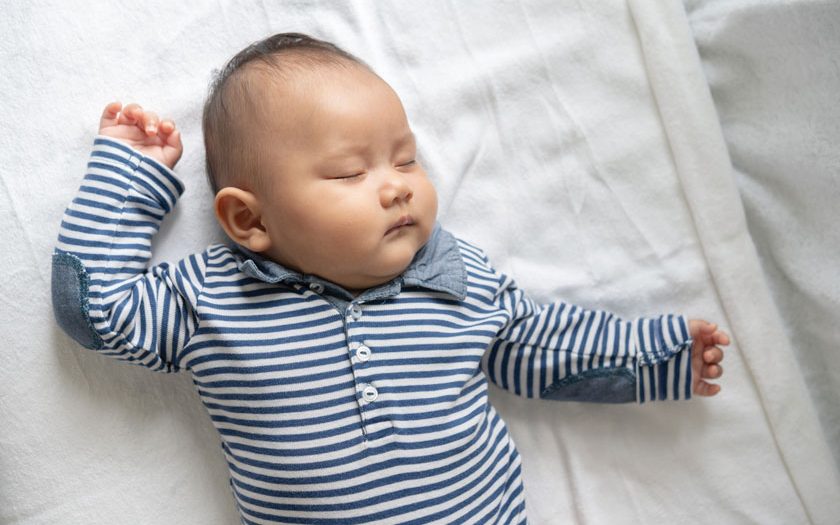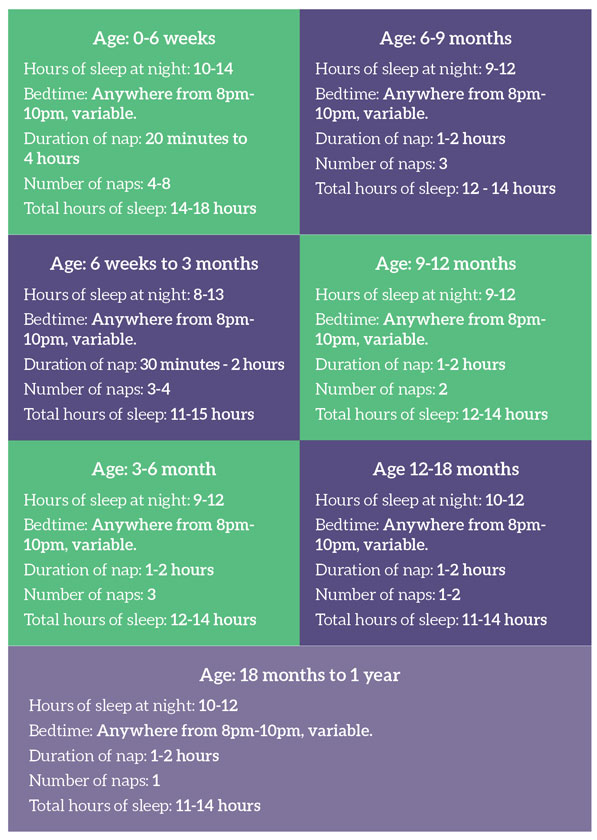We’ve heard this many times before, that a baby needs plenty of sleep to help him grow and thrive. Getting a baby to go to sleep, however, isn’t always a walk in the park (although sometimes, a walk in the park with a stroller might help!) Parents have been known to resort to all sorts of tricks to get their little one to doze off and stay asleep for as long as required. Exactly how much sleep does a baby need for his age and development, and how can parents help their little bundle get the sleep they need?
Well, firstly, newborns rarely have sleep problems unless they are uncomfortable, hungry or wet. They may also not sleep well if they’re feeling too cold or too warm. Most newborns, under the right circumstances, sleep rather well for the first few weeks of life. When they reach the 4 or 5-week benchmark though, they will tend to be more aware of what’s going in around them and will be more sensitive towards sounds, which might keep them awake or wake them from their sleep. One important trick all parents should know is to ensure that from the very start, their baby is exposed to some sort of white noise, or perhaps a radio for example, so that they will get accustomed to the noise and will not require complete silence to fall asleep or stay asleep.
While it’s a good thing if your baby can sleep despite noises in the room, do be wise about certain ‘sleep helpers’ such as lullabies, for example. Think about it: If a baby is conditioned in such a way that he needs to hear a certain sound to doze off to sleep, he might need to hear it whenever he wakes up, to fall back asleep again.
Your baby should always be comfortably (and safely) dressed for his slumber time. What you put on for your baby would depend on the temperature of the room. If you’re not using any air-conditioner and the room is at a normal or warmer temperature, your baby should be dressed to accommodate that environment, perhaps in cotton short-sleeved PJs for maximum comfort. If your baby’s room is air-conditioned, however, ensure your baby is garbed up appropriately for it.
It’s always a good idea to start your baby young on a sleep routine so that the little one will know when bedtime is approaching and will anticipate it. It doesn’t matter what you do in the last few minutes (beginning at least 10 minutes before sleep time) before putting your baby to bed, but the important thing is to keep it consistent so it becomes a ritual. Tip: Keep things as simple and uncomplicated as possible, for it will make things easier when your baby needs to sleep in a different environment, like when you go on family holidays, for instance. The simpler the sleep ritual, i.e a bath; breast/bottle; a little cuddle for example, the easier it will be for your baby to fall asleep anywhere.
Although maternal instincts play a major role in bringing up a child, when it comes to a baby’s sleeping time, parents have been known to be driven up the wall, so to speak, when their baby just refuses to sleep. If your baby is in his or her own room, the wisest thing to do is to tuck the little one in when it’s bedtime, (assuming your baby has been fed, changed and is comfortable), and leave the room immediately. Sometimes crying is inevitable, (and we’re talking about the baby, not the parents), when the baby doesn’t want to sleep. Patience is the key, always, so try to push aside the urge to run to their rescue at every cry. Instead, allow your baby a chance to try some self-soothing, and see if your precious bundle will fall asleep on his or her own.



